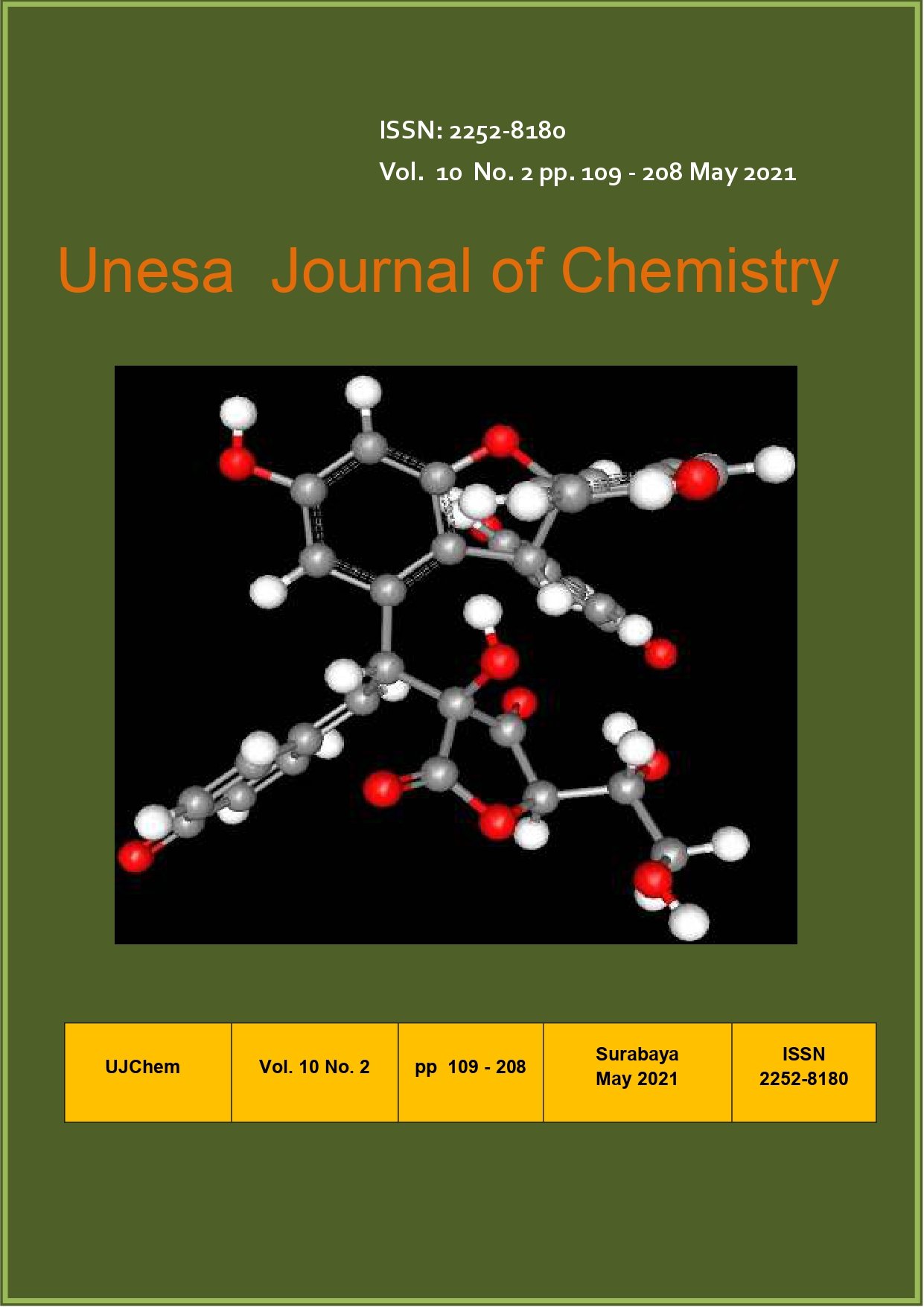Review: Efek Farmakologis dan Efek Toksik dari Daun Yakon (Smallanthus sonchifolius) Review: Pharmacological Effects and Toxic Effects of Yacon Leaves (Smallanthus sonchifolius)
Main Article Content
Abstract
Abstract. Daun yakon mengandung senyawa fenolik seperti golongan asam organik, flavonoid, dan sesqueterpen lakton yang memiliki banyak efek farmakologis. Daun yakon sebagai antioksidan mengikat secara langsung gugus reaktif radikal serta menghambat pembentukan enzim penyebab terbentuknya radikal. Sebagai antidiabetes daun yakon menurunkan kadar glukosa darah dan meningkatkan pembentukan insulin serta menghambat proses glikogenolisis dan glukoneogenolisis. Daun yakon sebagai antikanker menginduksi nekrosis sel kanker secara kemopreventif melalui tahap primer, sekunder, dan tersier. Sesqueterpen lakton merupakan senyawa antimikroba daun yakon penghambat pertumbuhan bakteri dan jamur. Asam klorogenat dalam daun yakon mengganggu aktivitas dan metabolisme mikroba dengan merusak membran sel. Sebagai antiinflamasi daun yakon meredam terjadinya inflamasi melalui penghambatan dan pengikatan faktor DNA transkripsi NF-kB dengan mengatur transkripsi mediator pro inflamasi. Secara in vitro dan in vivo daun yakon terbukti aman dikonsumsi dalam jangka panjang sampai batas dosis efektif yang diteliti. Terdapat pula hasil bahwa efek menyembuhkan setelah pengobatan selama 30 hari bersifat reversibel, sehingga daun yakon tidak dapat dikonsumsi dalam jangka waktu panjang. Perbedaan tersebut disebabkan banyak faktor seperti spesies dan jumlah hewan uji, cara pemberian dan pemilihan dosis sampel serta efek samping yang terjadi, teknik dan prosedur pengujian termasuk cara penanganan hewan selama percobaan dan keadaan sampel harus diperhatikan dalam proses pengujian.
Kata kunci : daun yakon, senyawa fenolik, efek farmakologis, efek toksik
Abstract. Yacon leaves contain phenolic compounds such as organic acids, flavonoids, and lactone sesqueterpenes which have many pharmacological effects. As an antioxidant, yacon leaves bind directly to radical reactive groups and inhibit the formation of enzymes that cause radical formation. As an antidiabetic, yacon leaves reduce blood glucose levels and increase insulin formation and inhibit the processes of glycogenolysis and gluconeogenolysis. As an anti-cancer agent, yacon leaves induce chemopreventive cancer cell necrosis through primary, secondary, and tertiary stages. Sesqueterpen lactone is an antimicrobial compound of yacon leaves that inhibits the growth of bacteria and fungi. The chlorogenic acid in yacon leaves disrupts microbial activity and metabolism by damaging cell membranes. As an anti-inflammatory, yacon leaves reduce inflammation through inhibition and binding of the transcription DNA factor NF-kB by regulating the transcription of pro-inflammatory mediators. In vitro and in vivo yacon leaves are proven to be safe for consumption in the long term until the effective dosage limit studied. There is also the result that the healing effect after 30 days of treatment is reversible, so that the yakon leaves cannot be consumed in the long term. This difference is due to many factors such as species and number of tested animals, method of administration and selection of sample doses and side effects that occur, testing techniques and procedures including how to handle animals during the experiment and the state of the sample must be considered in the testing process.
Key words: yavon leaves, fenolic compound, pharmacological effects, toxic effects

